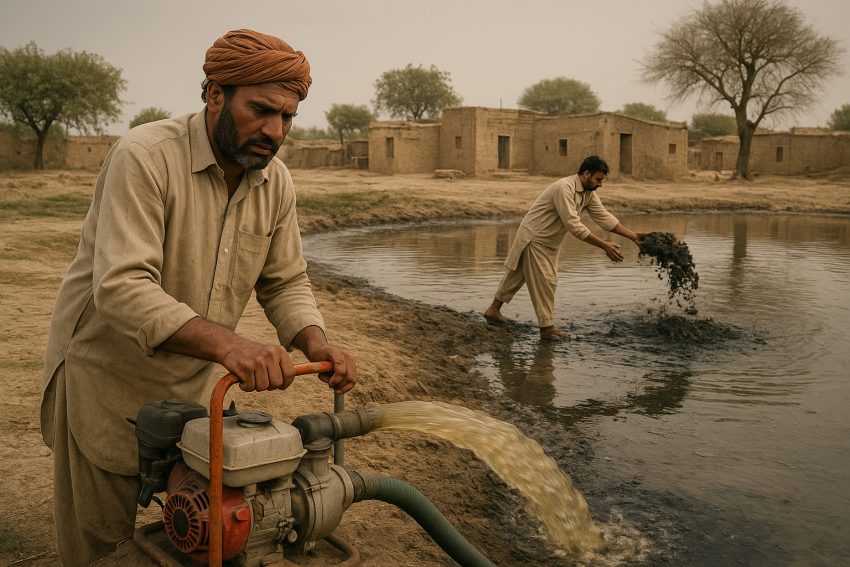For a farmer staring at a cracked and thirsty field, the news from Islamabad feels a world away. Our nation is suffering, but the wound isn’t something you’ll see in a headline about political rivalries. It’s the slow-drying well, the silent worry etched on a mother’s face as she rations water for her children. While our leaders trade barbs on television, a real, tangible crisis of survival is unfolding in our villages. It’s the crisis of water—the very lifeblood of our people—being squandered by neglect and endless debate. This isn’t just policy; it’s a moral duty we are failing to meet.
Since July 2025, a staggering 25 million acre-feet (MAF) of fresh, life-sustaining water has been lost to the sea. By the end of this month, that figure is expected to reach 30 MAF. To put this in perspective, this is enough water to irrigate the vast, arid Cholistan desert for a generation, turning dust into sustenance. It represents a colossal failure of management and a betrayal of our most vulnerable citizens.
The economic fallout is just as staggering. At a conservative valuation of one billion dollars per MAF, we have allowed an asset worth $30 billion to vanish into the Arabian Sea in a matter of months. This calculation does not even scratch the surface of the true cost. It ignores the billions lost to crop damage when floods, which this very water could have helped mitigate, devastate our agricultural heartlands. It overlooks the immense sums spent on flood relief and rehabilitation—funds diverted from education, healthcare, and development. We are trapped in a vicious cycle of wasting a precious resource and then paying an even steeper price to clean up the ensuing disaster.
This crisis is felt most acutely in our rural communities. The failure to harness this water translates directly into lost opportunities for millions of farmers. It means barren fields that could have been green, and livelihoods that wither along with the crops. Proper water management could have irrigated millions of acres of uncultivated land, providing a powerful bulwark against food insecurity and creating the economic stability needed to uplift millions out of poverty. Instead, we have chosen inaction, deepening the fissures of inequality and fueling rural despair.
Furthermore, our energy sector remains crippled by deficits while we simultaneously watch its most potent solution flow away. Every MAF of water that bypasses a turbine is a missed opportunity for clean, affordable hydroelectric power. Investing in dams and reservoirs is not merely about water storage; it is about powering our economy, reducing our reliance on expensive imported fuels, and building a more resilient and self-sufficient nation. These structures are dual-purpose assets: bastions against devastating floods in the wet season and reservoirs of energy and irrigation in the dry season.
The blame for this monumental failure lies not in a lack of resources or technical expertise, but in a crippling deficit of political will. For too long, our national water strategy has been held hostage by provincial squabbles and short-sighted political calculations. Critical infrastructure projects have been endlessly debated and delayed, sacrificed at the altar of petty politics.
So, this must be where it stops. We are at a breaking point, and moving forward means we must change. We have to finally silence the voices that tell us to blame the next province over and instead, listen to the quiet, desperate call of the land itself. We need to agree on a single, shared goal: a future where our children don’t have to worry about a dry tap or a failed crop. This means we get serious about building the dams we’ve been arguing about for decades. It means we get tough on waste. It means we learn to work together. And it means this becomes everyone’s responsibility, a new habit practiced in the fields of Sindh and the kitchens of Lahore, binding us together in a common purpose.
The challenge is immense, but so is the cost of continued inaction. Securing Pakistan’s water future is not a choice but an obligation—a collective responsibility we owe to ourselves and to the generations who will inherit the nation we build today.














